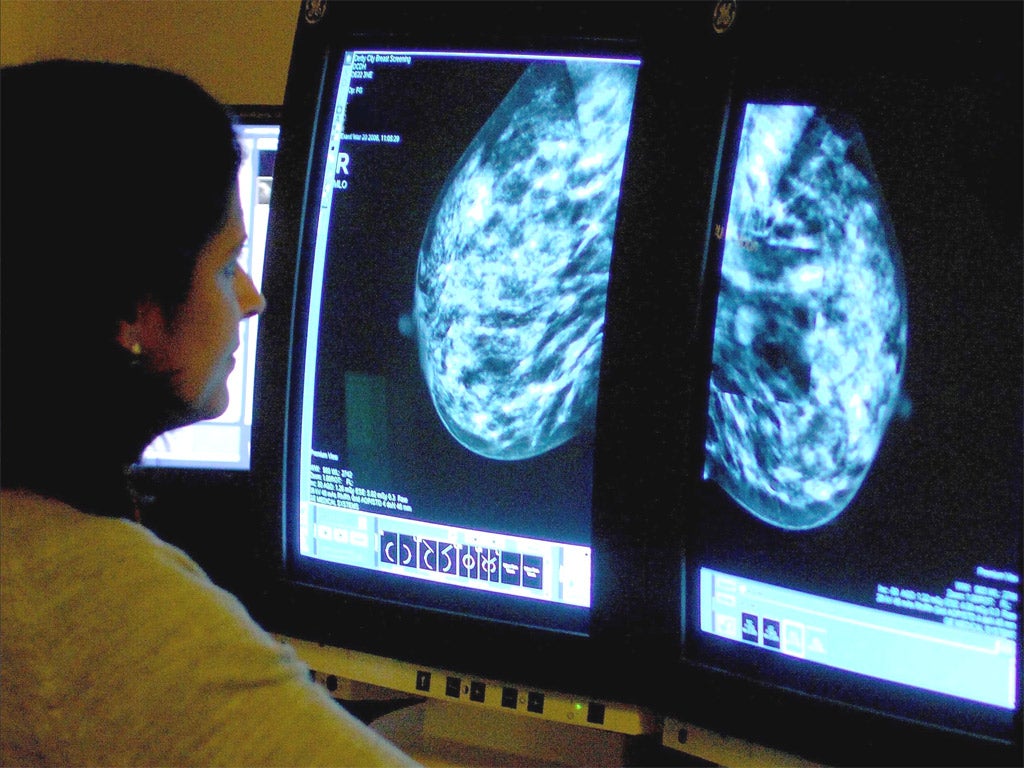New test allows surgeons to detect spread of breast cancer tumours immediately
The RD-100i OSNA system will spare sufferers the agony of waiting up to three weeks for results

Your support helps us to tell the story
From reproductive rights to climate change to Big Tech, The Independent is on the ground when the story is developing. Whether it's investigating the financials of Elon Musk's pro-Trump PAC or producing our latest documentary, 'The A Word', which shines a light on the American women fighting for reproductive rights, we know how important it is to parse out the facts from the messaging.
At such a critical moment in US history, we need reporters on the ground. Your donation allows us to keep sending journalists to speak to both sides of the story.
The Independent is trusted by Americans across the entire political spectrum. And unlike many other quality news outlets, we choose not to lock Americans out of our reporting and analysis with paywalls. We believe quality journalism should be available to everyone, paid for by those who can afford it.
Your support makes all the difference.Thousands of breast cancer patients could be spared agonising waits to find out whether they need follow-up surgery thanks to a new test that can detect whether a cancer has spread during the initial operation to remove a tumour.
Currently patients have to wait for up to three weeks for tests from their initial surgery to confirm whether or not a cancer has spread, but the new test allows surgeons to detect spread in the operating theatre itself and intervene immediately - removing the need for a second operation.
The new test - the RD-100i OSNA system, produced by health technology firm Sysmex - has now been recommended by the National Institute of Health and Care Excellence.
Every year, around 11,000 people with newly diagnosed breast cancer need additional surgery to manage the spread of the disease to the lymph nodes. Second operations can be more dangerous than the first, so the new test could improve survival rates.
Early intervention to remove any cancerous lymph nodes at the same time as the initial tumour also allows subsequent treatments like chemotherapy to be carried out earlier.
Professor Carole Longson, director of NICE's health technology evaluation centre said: “For people with breast cancer and their families, waiting to hear if the disease has spread can cause significant distress and anxiety. If the test is positive, and a second operation is needed to remove more of the axillary lymph nodes, the second operation can be technically more difficult and result in a higher risk of complications because it will involve operating on the same area of the breast and armpit as the first operation.”
The cost of the hardware for the RD-100i OSNA system is around £70,000, NICE said.
Breast cancer is one of the most common cancers in women. There are 46,000 new cases in England and Wales each year, and 10,900 recorded deaths.
Join our commenting forum
Join thought-provoking conversations, follow other Independent readers and see their replies
Comments